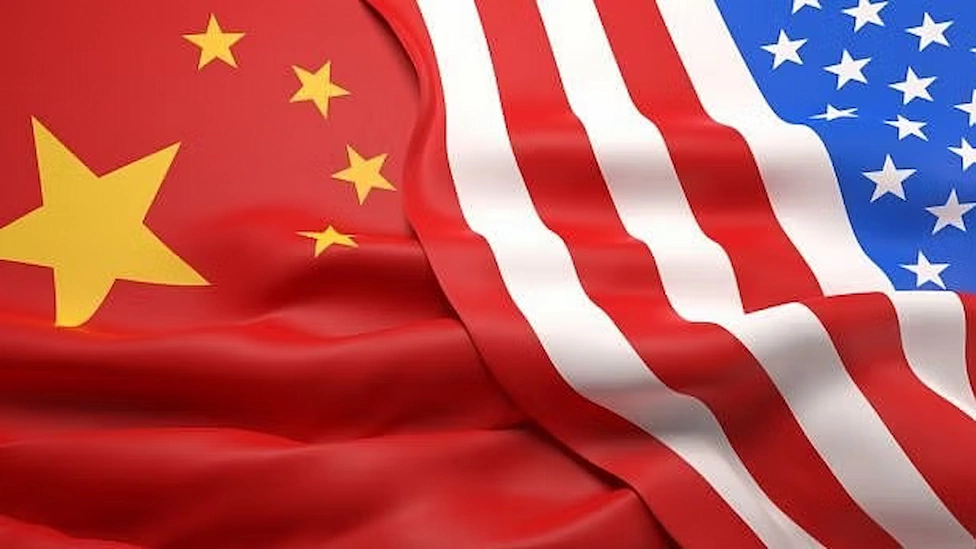U.S. Announces Major De Minimis Tariff Cut: On May 14, 2025, the U.S. will lower the de minimis tariff on goods shipped from China. This decision follows a trade truce reached between Washington and Beijing after talks in Geneva. The new tariff rate drops to 54% from the earlier 120%, with a $100 flat fee staying in place.
The move aims to ease ongoing trade tensions between the two largest global economies. It also gives online retailers like Shein and Temu time to adjust. The White House confirmed the tariff change in a formal order on Monday.
Also Read | Markets Soar After 90-Day U.S.-China Tariff Truce Slashes Trade War Tariffs
U.S. Announces Major De Minimis Tariff Cut: Insights
- The de minimis tariff cut lowers duties on Chinese goods from 120% to 54%.
- The $100 flat fee will remain in effect.
- The change starts on May 14, 2025, at 12:01 a.m.
- The cut follows a trade truce announced after Geneva talks.
- The previous exemption allowed items under $800 to enter duty-free.
- President Trump had ended the exemption in February 2025.
- Over 90% of shipments entered via the de minimis route, with 60% from China.
- Retailers like Shein, Temu, and AliExpress are major beneficiaries.
- Lawmakers have criticized de minimis as a loophole for cheap goods and illegal imports.
- The Geneva deal slashes mutual tariffs and offers a 90-day pause.
Background
The U.S. de minimis rule allows low-value items to enter with fewer checks and no tariffs. This rule has been in place since 1938. In early 2025, President Trump ended the exemption, citing abuse by Chinese retailers and illegal traffickers. The previous plan set tariffs at 120% or a $200 flat fee.
These actions sparked concerns from e-commerce companies and international partners. The de minimis tariff cut comes as part of efforts to cool rising trade tensions between the U.S. and China, which escalated earlier this year.
Main Event
In a fresh move to reduce trade tensions, the U.S. has announced a significant de minimis tariff cut on Chinese shipments. The White House issued an executive order confirming the change just hours after a joint statement from U.S. and Chinese officials in Geneva. While the Geneva deal did not mention the de minimis rule, the order clearly stated that the tariff would drop to 54% from 120%. The $100 flat fee remains unchanged. These changes will take effect at 12:01 a.m. on May 14, 2025.
The decision reverses a February order by President Trump that ended the long-standing de minimis exemption. That policy targeted Chinese platforms like Shein and Temu, accusing them of exploiting the rule to ship cheap goods and illegal substances. It also planned to introduce a $200 flat fee by June, which will now be shelved.
More than 90% of incoming packages used the de minimis channel, with 60% of them coming from China. Online retailers like Shein, Temu, and AliExpress benefited most. Their rise also pushed Amazon to launch Haul, a low-cost shipping program.
Experts say the de minimis tariff cut gives these platforms breathing room to adapt. Many are expected to bring in bulk shipments and stock up in U.S. warehouses. Retailers have yet to respond to the announcement, but the pause offers them time to reassess their logistics.
Implications
The de minimis tariff cut offers relief to Chinese e-commerce platforms and U.S. online shoppers. Retailers like Shein and Temu can maintain low prices, which benefits consumers. However, U.S. manufacturers may feel pressure from cheap imports.
Lawmakers from both parties remain concerned about product safety and illegal goods entering the country. The government may face increased scrutiny over how it handles future enforcement. Businesses now have a 90-day window to adapt their strategies. The tariff rollback may also improve U.S.-China trade relations, at least temporarily.
Conclusion
The de minimis tariff cut marks a clear shift in U.S. trade policy with China. It reflects a move toward easing economic tensions and supporting the e-commerce boom. Experts believe the 90-day tariff pause will help businesses stabilize and adapt. However, debates around national security and fair trade are likely to continue.
Future talks may bring lasting changes.



